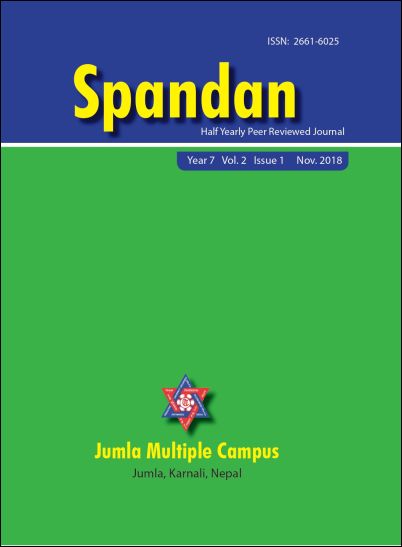Principal Tenets, Critiques and Educational Implication of Hermeneutics
DOI:
https://doi.org/10.3126/spandan.v2i1.63377Keywords:
Hermeneutics, Principle tenets and critiques, philosophical root(s), Research components, educational implications, Nepalese scenarioAbstract
Hermeneutics is perceived as the art of interpretation. It focuses on interaction and language: it seeks to understand situations through the eyes of the participants. It involves the recapturing of (lie meanings of interacting with others. recovering, and reconstructing the intentions of the other actors in a situation. The purpose of using hermeneutics is to aid human understanding It helps the qualitative researcher in business and management to understand what people say and do. and why. So Hermeneutics is the activity of interpretation of text because every reader is an interpreter, lie can analyze as he like. Hermeneutics helps a researcher to produce a story that is believable. There are many different ways to analyze qualitative data among them. hermeneutics is one. This paper discusses the principal tenets and critiques of hermeneutics explaining its philosophical root(s) and the research components with its educational implications in contrast to the other sociological theories in the Nepalese scenario using data from secondary sources.




